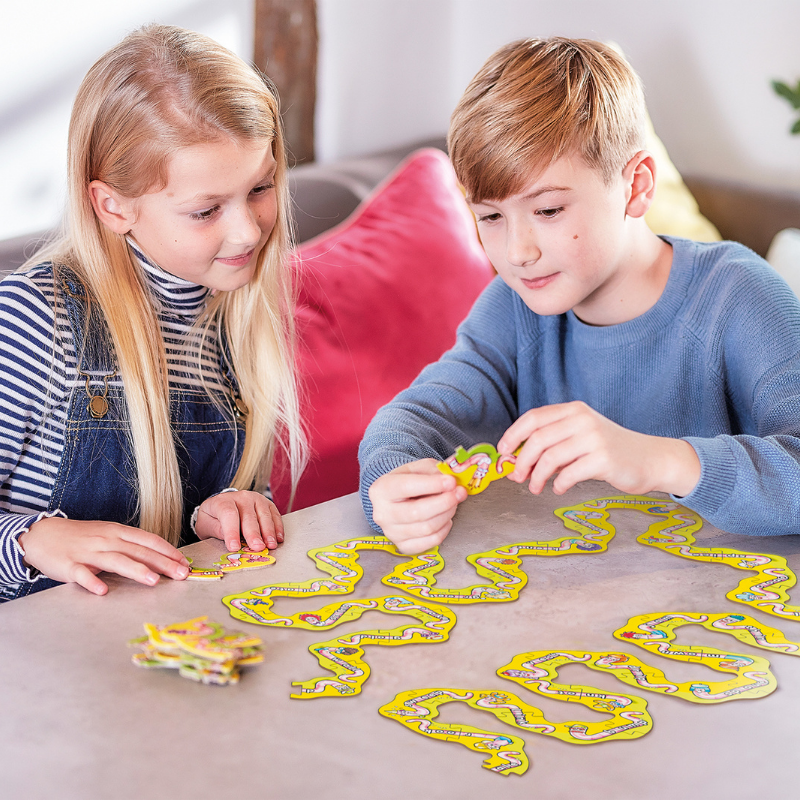
How to give children with dyslexia a confidence boost

From actresses and entrepreneurs, boxers to scientists, and even an Arctic explorer – there are some amazing people out there who didn’t let dyslexia get in the way of being awesome.
And neither should your child.
Dyslexia can make school difficult and indeed stressful; most, if not all, subjects are taught through reading and writing. This is really tiring for a child with dyslexia because their brain has to work particularly hard to make sense of the words on the page.
That constant struggle to keep up with peers can ultimately lead to a lack of confidence – not just in reading and writing.
Positivity breeds positivity
To give your child a self-esteem boost, it’s important that you are positive about their abilities.
Giving them sincere praise for their efforts and achievements in reading and writing, however small they might seem, can help motivate your child to keep trying.
Be realistic about your child’s abilities too – pushing them too far too quickly can knock their confidence.
Wiggly Words by Orchard Toys is a game that gives children the opportunity to practise forming and spelling words. Dyslexic children would benefit from playing at their own pace, on their own, to see how many words they can make and remember how they are formed.
Explore and discover interests
It’s also a good idea to try out other activities that don’t rely on reading and writing; remember that not all learning happens inside the classroom.
Every child is different so there isn’t one activity I would recommend to suit all. Ask your child if there’s anything they’d like to try – it doesn’t have to be expensive – and go from there. You might be surprised by what they go for!
Family games can also be a great way to build confidence. Look for games that don’t require too much reading to keep the focus on fun.
For example, Quirk! is a card game that only requires players to be able to recognise pictures on the cards. Players have to mime, act out, or do impressions of the images in the hope that the other players can guess what they are trying to be.
Dobble is another visual card game and has several different ways to play. It’s essentially a trickier version of snap, as players need to match symbols on the cards – but each card has eight symbols to look at instead of one! This also means your child can practise their visual perception skills, which can help children with dyslexia.
Stories without words
Often children’s reading level dictates the books they read in school – for children who are on the lower reading levels this can be dull and demotivating because the stories themselves aren’t age-appropriate.
I would suggest finding stories for your child that they can enjoy just for fun, without the pressure of it being a ‘school book’.
You can find books that have been designed for children with dyslexia on the Barrington Stoke website – these books include tinted pages, clearer fonts, and spacing, and are edited to minimise barriers to comprehension. They also have thicker pages so that the text doesn’t show through and distracts from the words being read. Crucially, they have ranges for different ages, and reading ages.
Your child’s listening skills may be better than their reading skills, so you could also consider using audiobooks to unlock all sorts of stories for them. Audible from Amazon currently has a 30-day free trial for new members and includes the likes of Harry Potter and The Chronicles of Narnia, Roald Dahl, and David Walliams.
Conclusion
Dyslexia can make school more challenging, which isn’t great for a child’s confidence. So it’s important to remember that school is not the be-all and end-all – giving your child experiences outside of the classroom can give them all of the opportunities they need to believe in themselves and succeed.
“Everybody is a genius. But if you judge a fish by its ability to climb a tree, it will live its whole life believing that it is stupid.” – Albert Einstein





